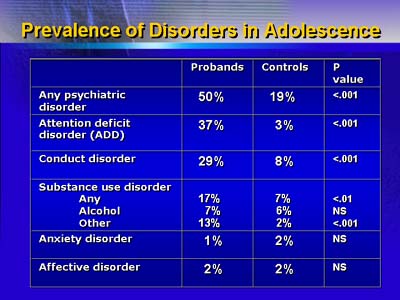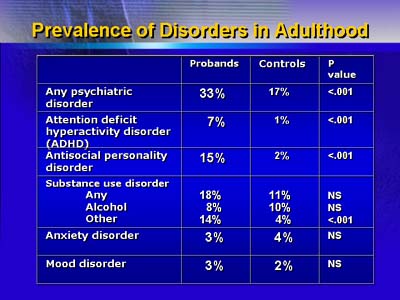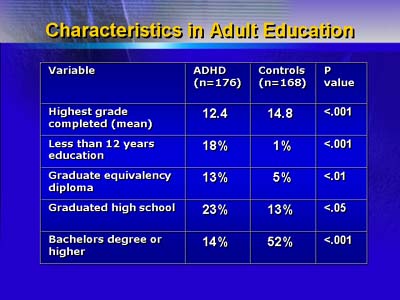Although some evidence suggests that childhood attention deficit hyperactivity disorder persists through adolescence, few studies have followed patients into adulthood. Those that have studied the disorder beyond adolescence have been limited by small patient samples, short follow-up durations, lack of comparison groups, and non-blinded designs.
To address those limitations, Dr. Klein's group undertook a longitudinal study that compared outcomes in 226 boys diagnosed with attention deficit hyperactivity disorder and a comparison group of normal boys with no history of behavioral problems. The subjects were evaluated during childhood, adolescence, and adulthood using blinded diagnostic assessments, psychological testing, and semi-structured interviews.

Results showed that the disorder persisted throughout adolescence in 37% of subjects versus 3% of controls (p < 0.001), and it was a risk factor for adolescent conduct disorder, 29% of subjects versus 8% of controls. Substance abuse disorders and arrests were twice as prevalent for adolescents with the disorder who had been diagnosed during childhood.
Adolescents who were hyperactive in childhood were more likely to be convicted of a crime and go to jail.

Adults with the disorder were significantly more likely to have been diagnosed with it during childhood (7% versus 1% of controls). Affected adults continued to experience educational disadvantages, with nearly 20% failing to finish 12 years of education (compared with only 1% in the control group). Six subjects died of traumatic causes including suicide, homicide, and unintentional injuries. None of the controls had died.

Dr. Klein recommends early, aggressive treatment of attention deficit hyperactivity disorder to help prevent serious sequelae, emphasizing the importance of ruling out the disorder as a treatable cause of drug abuse in children or adolescents.